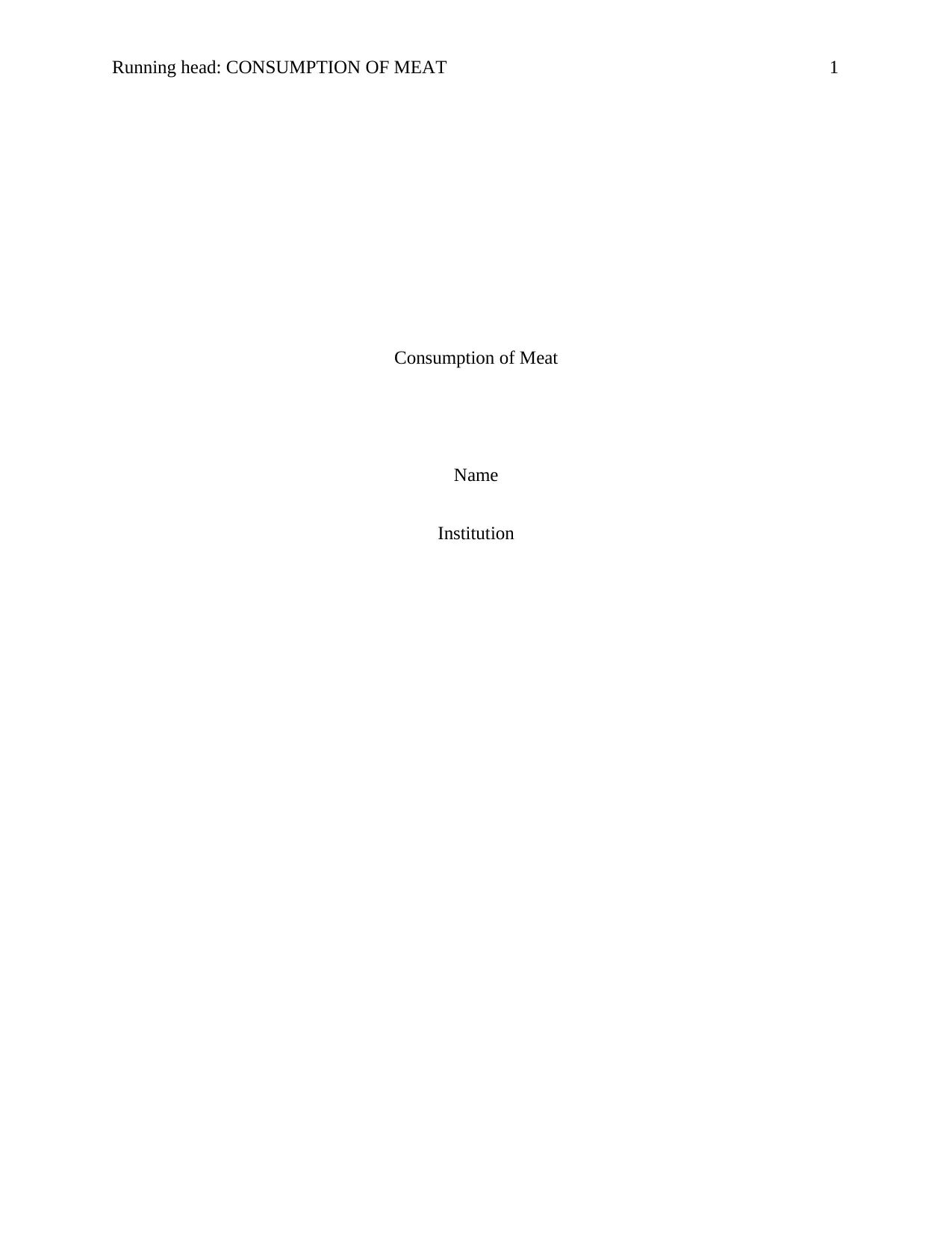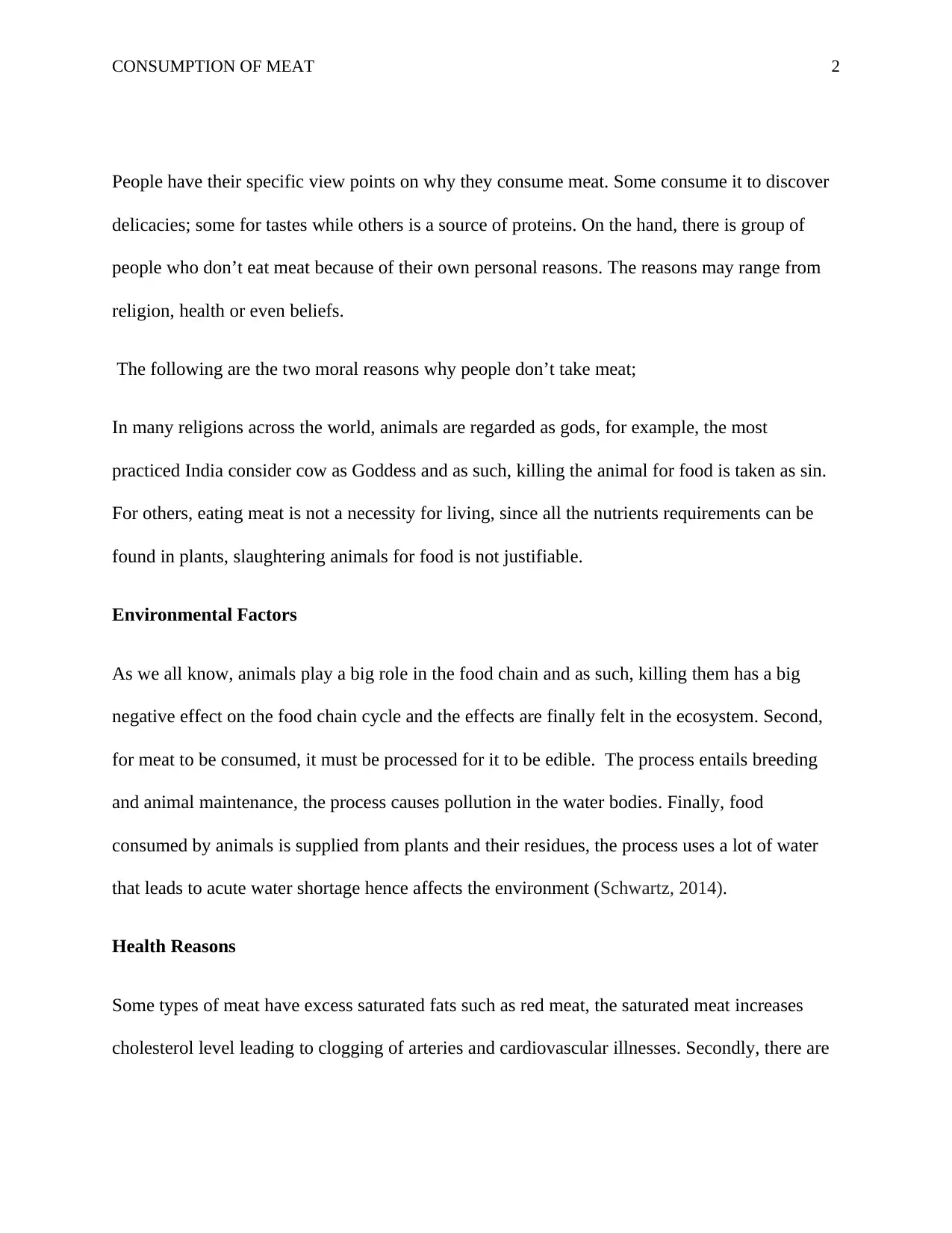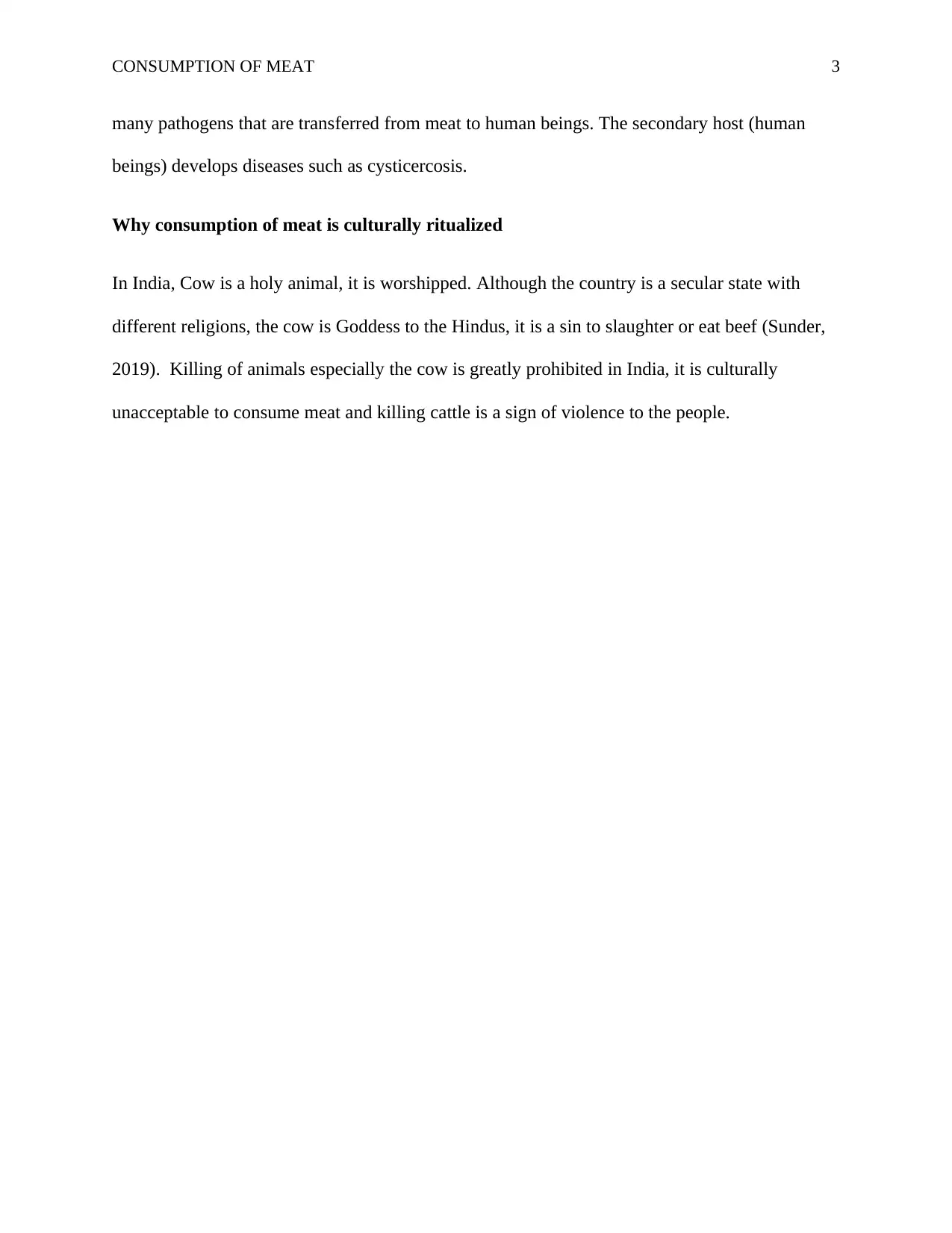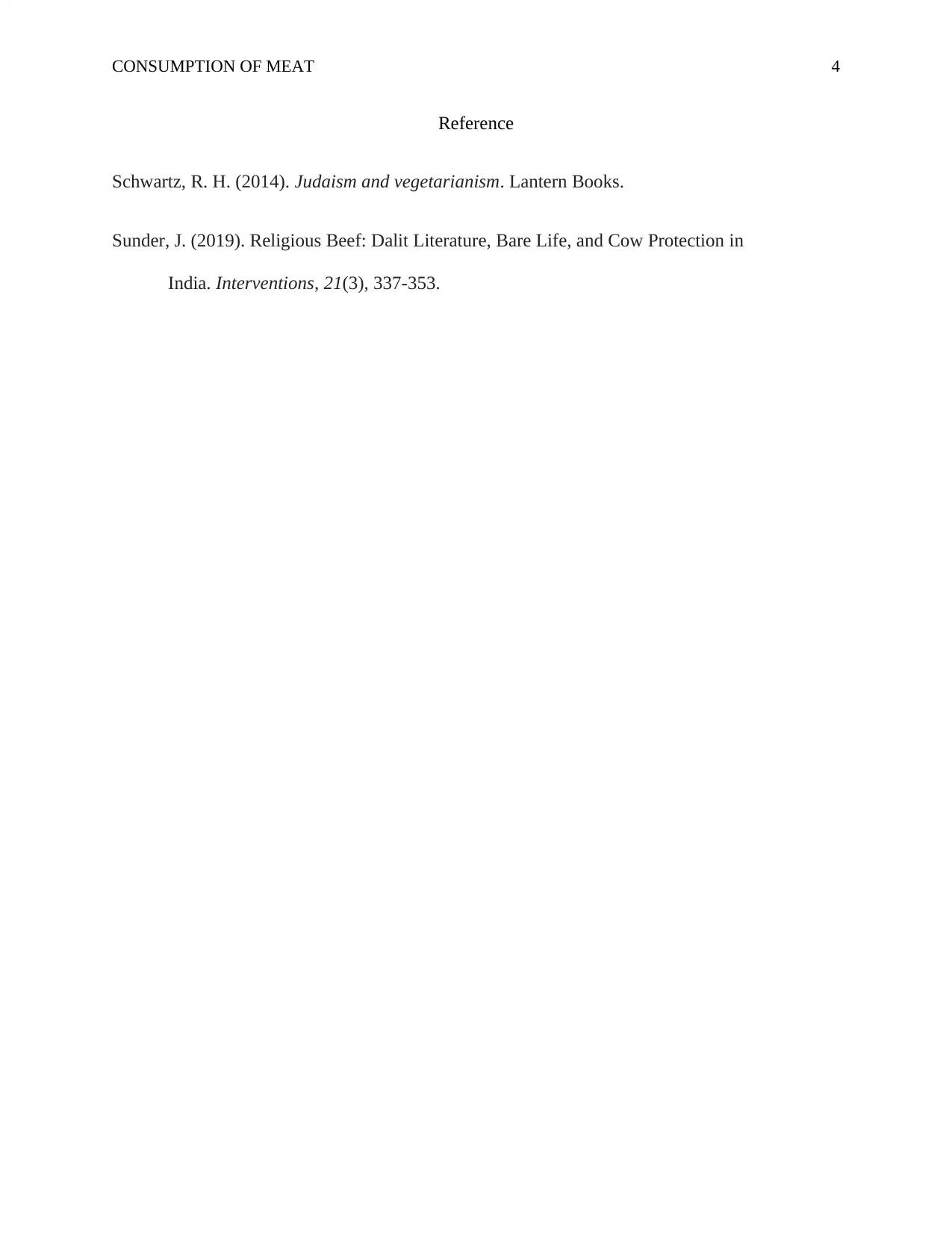Ethical Considerations of Meat Consumption and Its Impact on Society
VerifiedAdded on 2022/09/12
|4
|469
|14
Essay
AI Summary
This essay explores the ethical considerations surrounding meat consumption, examining the arguments for and against the practice. It delves into the religious and cultural beliefs that influence these viewpoints, particularly focusing on the Indian context where the cow is revered. The essay discusses the environmental impact of meat consumption, including the effects on the ecosystem and the water usage involved in meat production. It also highlights the health implications, such as the potential for increased cholesterol levels and the transmission of diseases. This essay also examines the cultural aspects of meat consumption, including the prohibition of beef consumption in some cultures. The essay also touches upon the ethical aspects of meat consumption and its impact on the society. This analysis provides a comprehensive overview of the complex relationship between humans, animals, and the environment.
1 out of 4







![[object Object]](/_next/static/media/star-bottom.7253800d.svg)